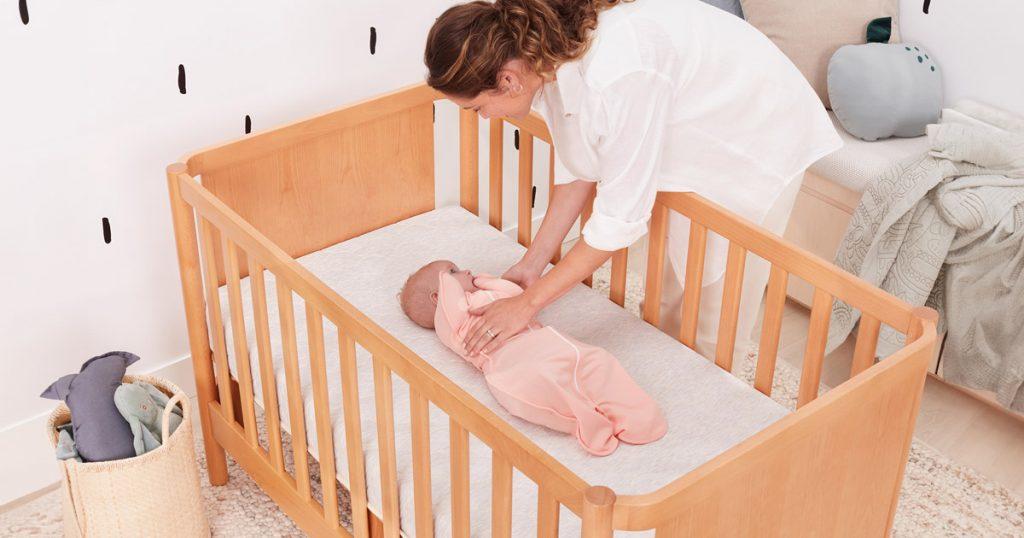Parenting is tough and often feels like a never-ending job. For mothers, it can be even harder, as they usually take care of their babies from pregnancy through early childhood. One big worry for new moms, especially first-timers, is how to get their baby to sleep. According to a study by the American Academy of Pediatrics, up to 30% of babies and toddlers have trouble sleeping. Finding quick ways to help a baby fall asleep not only supports their growth but also gives tired parents some much-needed rest.
Why Babies Sometimes Don’t Fall Asleep Easily
Babies can have trouble falling asleep for various reasons. Here are some common ones:
- Environmental Factors: Temperature, light, and noise can influence a baby’s sleep. They need a quiet, dark, and cool environment to fall asleep easily.
- Overstimulation: Too much activity or excitement before bedtime can make it hard for babies to calm down and sleep.
- Erratic Sleep Schedules: Babies need consistency in their lives. They may become confused and find it more difficult to fall asleep at night if their sleep schedule is constantly shifting.
- Hunger: A hungry baby is less likely to fall asleep and stay asleep.
- Discomfort: Things like diaper rash, teething, or other physical discomforts can keep a baby awake.
These factors significantly contribute to sleep problems in babies. When babies struggle to sleep, parents often miss out on much-needed rest, too. Fortunately, there are effective methods to help babies fall asleep more easily.
Strategies to Put a Baby to Sleep Fast in 40 Seconds
Here are a few simple tips to aid in your baby’s swift sleep:
1. The Tissue Trick
Gently stroke your baby’s forehead with dry tissue paper. The light, repetitive motion can calm them and help them fall asleep.
2. White Noise Machine
Use a white noise machine to play soothing sounds, like gentle static or soft humming. This can put your baby to sleep more quickly by making them feel secure and at ease.
3. Running Water Sounds
Play recordings of rain or running water. These sounds can create a calming environment that helps your baby relax and fall asleep. You can use apps or your own recordings.
4. Shh, Swing & Swaddle
Snuggle your baby in a cozy blanket, cuddle up to them, and rock them softly while hushing them in. This combination can make your baby feel cozy and ready to sleep.
5. Relaxing Touch Technique
Before going to bed, give your infant gentle cheek and palm strokes. Combine this with a warm bath and a gentle massage to help them relax and fall asleep.
6. Chanting and Singing
Babies love hearing their parents’ voices. You can hum music, chant gently, or sing lullabies to your baby to help them fall asleep.
7. Calming Lotions
Use soothing lotions, such as lavender, after taking a warm bath. The soft touch and calming aroma can help your baby unwind and get ready for bed.
Don’ts for Helping a Baby Fall Asleep
Here are some things to avoid when trying to help your baby fall asleep:
1. Avoid Overstimulation
Keep activities calm and quiet in the hour before bedtime. Don’t play loud games or watch TV right before sleeping.
2. Don’t Skip Naps
Make sure your baby gets enough daytime naps. Overly tired babies can have trouble falling asleep and staying asleep at night.
3. Limit Feeding Right Before Bed
Try not to feed your baby to sleep, as it can create a habit. Feed them well before bedtime so they are full but not dependent on feeding to sleep.
4. Don’t Use Harsh Light
Avoid bright lights before bedtime, including screens from phones, tablets, and TVs. The light can mess up their natural sleep-wake cycle.
5. Avoid Picking Up Too Quickly
Wait a short while before picking up your baby if they wake up during the night. Maybe they will fall back asleep by themselves.
6. Don’t Ignore Safety
Always place your baby on their back to sleep. Make sure the crib is free of loose bedding, pillows, and toys to reduce the risk of SIDS (Sudden Infant Death Syndrome).
By following these don’ts, you can create a safer and more effective bedtime routine for your baby, making it easier for them to fall asleep and stay asleep.
The Importance of Good Sleep for Babies and Parents
Getting good sleep is very important for both babies and their parents. For babies, sleep helps them grow, develop their brains, and keep their immune systems strong. Babies who get enough sleep tend to be happier and more attentive.
For parents, when their baby sleeps well, they can also get enough rest. Good sleep helps parents stay healthy, feel better emotionally, and think clearly. This makes it easier to handle the daily tasks of parenting.
By knowing why babies might have trouble sleeping, using tips to help them fall asleep quickly, and following important do’s and don’ts, you can create a peaceful sleep environment for your baby. This leads to better sleep for everyone, making for a healthier and happier family.
